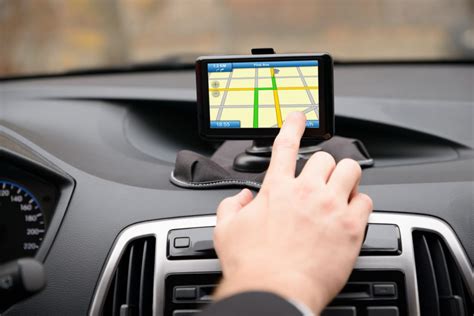Driving down the open road, wind in your hair, music playing softly in the background – for many older adults, this represents a sense of freedom and independence that is not easily relinquished. However, as we age, certain cognitive functions may begin to decline, affecting our spatial awareness and potentially making driving more challenging.
A recent study conducted by a team of researchers shed light on how older drivers utilize GPS navigation systems to navigate their way through life on the roads. It was discovered that individuals over 65 who struggle with their sense of direction often turn to technology such as Sat Nav or smartphone maps for assistance. These tools not only provide guidance but also play a crucial role in helping seniors maintain their driving autonomy.
Professor Michael Hornberger from UEA’s Norwich Medical School emphasized the significance of driving for older adults, stating,
“Driving is usually the preferred mode of transport among older adults…vital for maintaining independence, quality of life, wellbeing, and cognitive health as we age.”
He further explained how age-related cognitive decline can impact spatial abilities, leading to a decrease in driving frequency. Understanding these factors is essential due to our aging population’s increasing need for safe and independent transportation options.
Lead author Dr. Sol Morrissey highlighted the benefits of using GPS systems while driving to alleviate cognitive demands associated with navigation tasks, especially when traveling to unfamiliar destinations. As technology continues to evolve rapidly, it has become evident that older drivers are increasingly embracing these tools for support on the road.
In their research involving 895 UK drivers aged over 65, the team explored participants’ driving habits, sense of direction proficiency, and usage of GPS devices. Cognitive tests were administered online to assess memory and spatial abilities alongside analyzing how GPS utilization correlates with driving patterns and cognitive performance.
“We found that a significant number of older drivers rely on navigation assistance during journeys,”
Prof. Hornberger shared.
“Those with weaker spatial orientation skills tend to lean more towards Sat Navs.”
What stood out was the observation that individuals utilizing GPS tend to drive more frequently than those who do not use such aids. This suggests that these technologies play a vital role in mitigating spatial challenges and supporting ongoing mobility among elderly drivers.
By offering support and guidance on using GPS navigation systems effectively, there is potential to enhance older adults’ driving independence significantly – ensuring they can continue safely navigating roads well into their golden years.
The collaborative nature of this groundbreaking study involved institutions such as University of Exeter, Oxford Brookes University, Chester Wellness Centre along with UEA. Supported by the National Institute of Health and Care Research (NIHR) Applied Research Collaboration (ARC) East England and funded by Department for Transport; this research serves as a beacon illuminating the path towards empowering senior citizens through technology-driven solutions on their journey behind the wheel.

